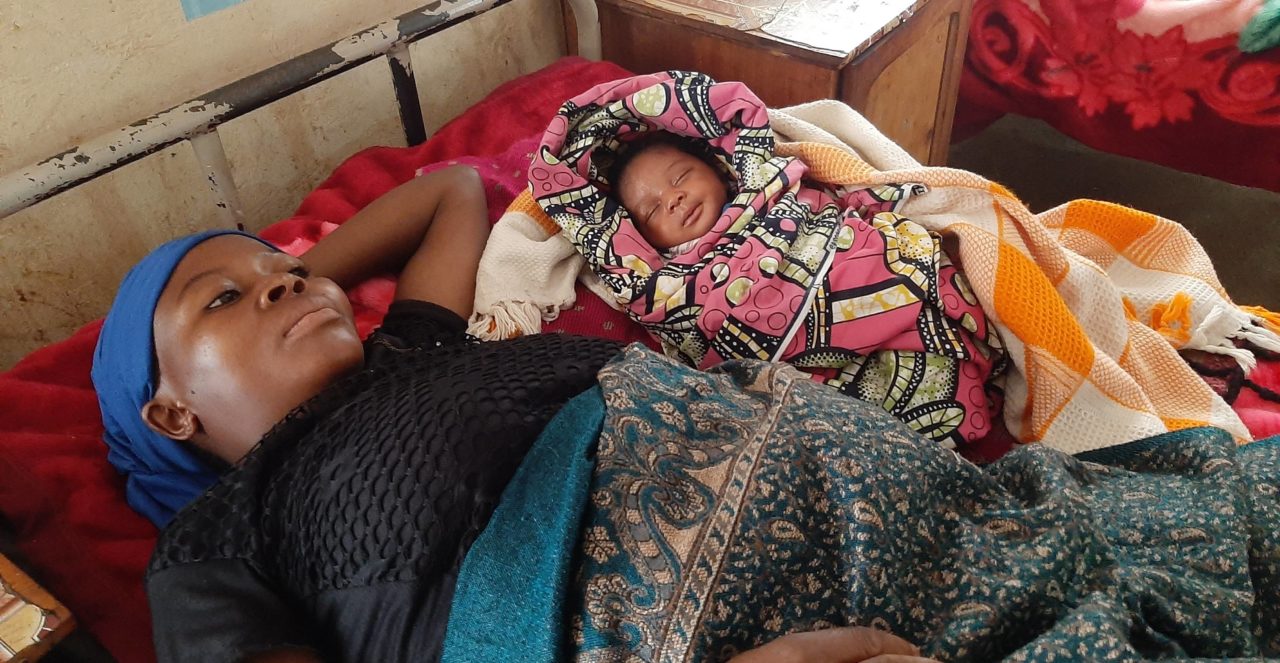 A great start in life for premature babies!
A great start in life for premature babies!
Obstetric care at the hospital in Nzibira in the Democratic Republic of the Congo
"We are pregnant!" Such words stand for the anticipation of the family-to-be. However, the weeks during pregnancy are often also marked by worries about the baby's health. But even in times of uncertainty, for example with regard to complications during birth, parents in rich countries can rest assured that they are in safe hands. When a baby is born prematurely in this country, the first question is often: Will the baby develop into a healthy child? In the Democratic Republic of Congo, unfortunately, the question is often more about whether the child will survive at all. Maternity hospitals, especially in rural areas, are very poorly equipped and lack important medical equipment such as incubators, which are vital for the care of premature babies. Currently, health workers at the hospital in Nzibira use hot water bottles to keep the premature babies warm. Keeping the temperature constant at 37°C is almost impossible.
Necessity
Improved intensive care for premature babies and newborns with complications in Nzibira, DRC.
Activity
The local NGO AEO/CNA procures medical equipment and medicines and qualifies health workers to provide intensive care for newborns.
Countable effort
Number of newborns treated in intensive care. Number of staff trained in neonatology (newborn medicine).
Result
Intensive care for newborns improves. Deaths of newborns in the first 28 days in the hospital in Nzibira decrease.
Systemic effect
The health of children under the age of 5 in the Nzibira region has improved considerably and the number of newborn deaths is declining.
Background
Despite significant progress in maternal and child healthcare, the number of deaths among children under 5 in the DRC remains extremely high, at 85 deaths per 1,000 live births (UNICEF, 2020). One third of these children die during the first 28 days (UNICEF, 2020). According to UNICEF (2018), 80 per cent of all neonatal deaths are due to three preventable and treatable causes: Complications due to prematurity, asphyxia (respiratory failure) and infections. A premature birth is when a baby is born earlier than the 37th week of pregnancy. These premature babies have to be treated in maternity clinics because their organs are not yet sufficiently developed to survive. Premature babies’ own heat generation is severely limited and their too-small lungs do not supply their bodies with enough oxygen. At the hospital in Nzibira in 2020, every 7th child was premature or had complications such as oxygen deprivation or an infection. Even though the health workers are very committed, the lack of equipment and knowledge currently prevents them from providing adequate intensive care to sick newborns. Medical equipment such as incubators and oxygen units would provide the premature babies with protective warmth and oxygen.
The good deed
With your donation today, you will support a hospital in the rural region of Nzibira in the east of the DRC and thus contribute to improving the intensive medical treatment of premature and newborn babies with complications. The hospital will be provided with medical equipment, such as an incubator and an oxygen machine, as well as medicines and medical consumables. The incubator provides a protected environment for the regeneration and healthy development of the children until their organ functions stabilise and they are able to regulate their body temperature on their own. By employing another qualified midwife, the health status can be optimally monitored. The high-quality health care contributes to a lasting improvement in the health status of children under 5 years from the catchment area of the hospital in Nzibira and to a decrease in the mortality rate of newborns.

AboutDemocratic Republic of the Congo
Kinshasa
Capital
89,561,404
Number of inhabitants
557 USD
Gross domestic product per capita per year
175 of 189
Human Development Index
The DRC is the second largest country in Africa and its area is more than six times the size of Germany (Auswärtiges Amt, 2019). Among the nearly 100 million inhabitants, four national languages and 200 other local languages are spoken in addition to French (Auswärtiges Amt, 2019).
About the organization and further information
Association
Deutsches Medikamenten-Hilfswerk action medeor e.V.
Website

Further information and source
- ACAPS, 2021. DRC – Complex Crisis, Stand: 23.03.2021, Genf.
- Auswärtiges Amt, 2019. Kongo (Demokratische Republik Kongo): Überblick, Stand: 25.08.2021, Berlin.
- ReliefWeb, 2015. Democratic Republic of the Congo – Profile of preterm and low birth weight prevention care, Stand: 23.03.2021, New York.
- UNICEF, 2018a. Pour chaque enfant, une chance de vivre, Stand: 29.03.2021, New York.
- UNICEF, 2018b. MICS-Palu 2018 – Situation and living conditions of children, women and men in the Democratic Republic of Congo – Sud Kivu, Stand: 27.03.2021, New York.
- UNICEF, 2020a. Ending preventable Newborn Deaths and Stillbirth by 2030, Stand: 28.03.2021, New York.
- UNICEF, 2020b. Democratic Republic of the Congo – Demographics, Health and Infant Mortality, Stand: 29.03.2021, New York.




